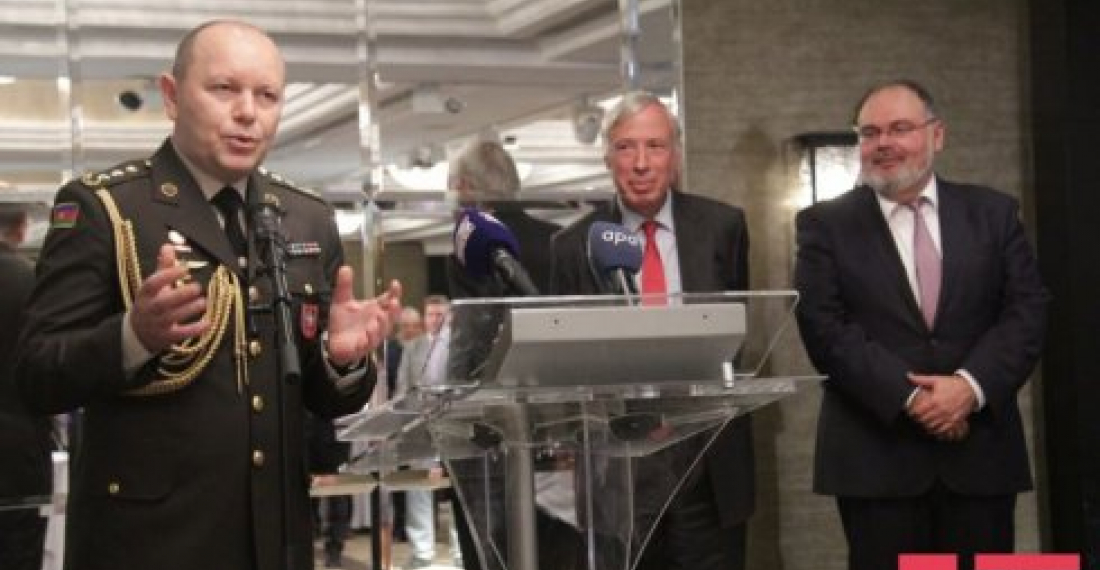A celebration was held in London on Thursday, 21 June to mark the 100th anniversary of the establishment of the Azerbaijani Armed Forces. The official reception at the Jumeriah Carlton Towers Hotel was attended by UK officials, military attaches of Embassies of many countries and other personalities. Guests were welcomed to the reception by the Azerbaijani Ambassador to London Mr Taher Taghizade, and the Azerbaijani Defence Attache in London, Colonel Vugar Akhmadov.
Speaking at the event, the UK Minister of State for Defence, The Earl Howe, hailed the co-operation between the United Kingdom and Azerbaijan. He commended Azerbaijan's military participation in peacekeeping missions in Iraq, Afghanistan and elsewhere where they co-operated closely with their UK counterparts. Lord Howe paid tribute to the Azerbaijani servicemen and servicewomen who fought against fascism and nazism in the second world war. He also congratulated Azerbaijan on the occasion of the 100th anniversary of its independence, and of the establishment of its armed forces.
source: commonspace.eu
photo: The Earl Howe, UK Minister of State for Defence, flanked by the Azerbaijani Defence Attache, Col Akmadov (l) and the Azerbaijani Ambassador (r) at a reception marking the 100th anniversary of the establishment of the Azerbaijani Armed Forces held in London on 21 June 2018 (picture courtesy of APA news agency, Baku)







